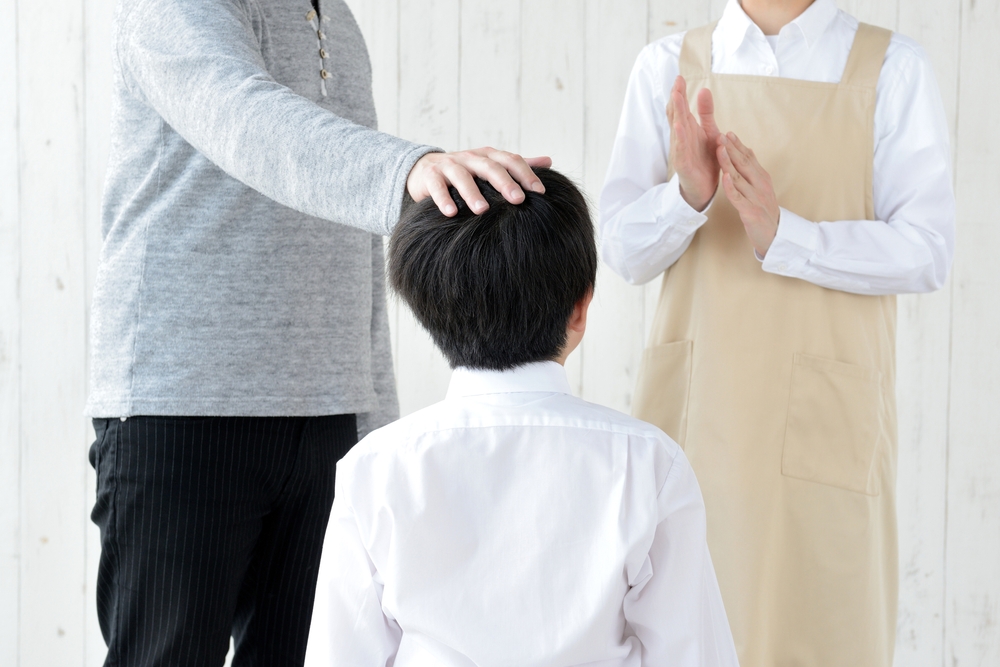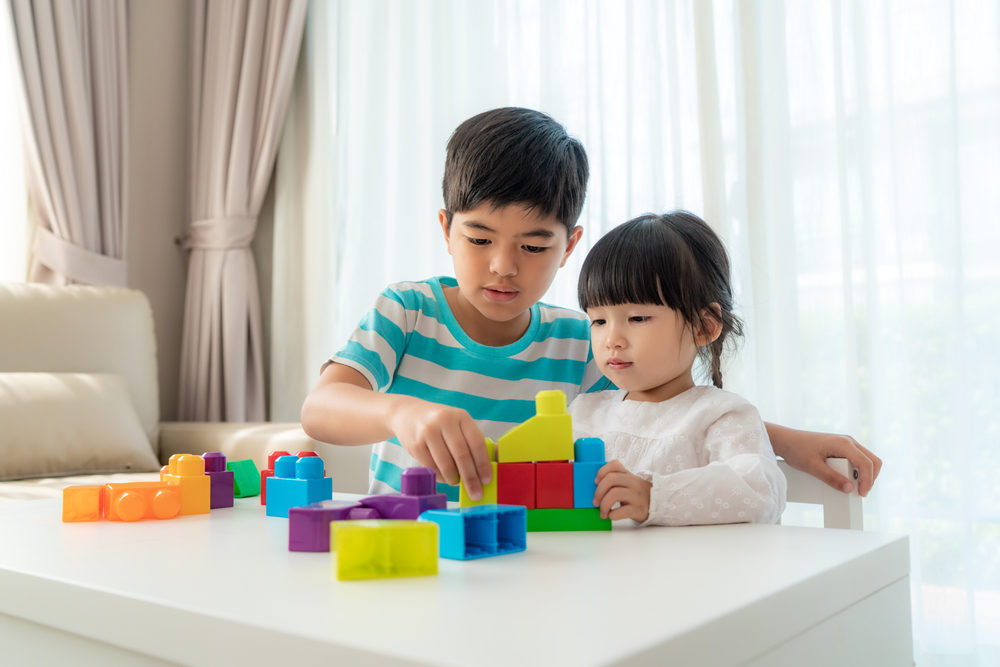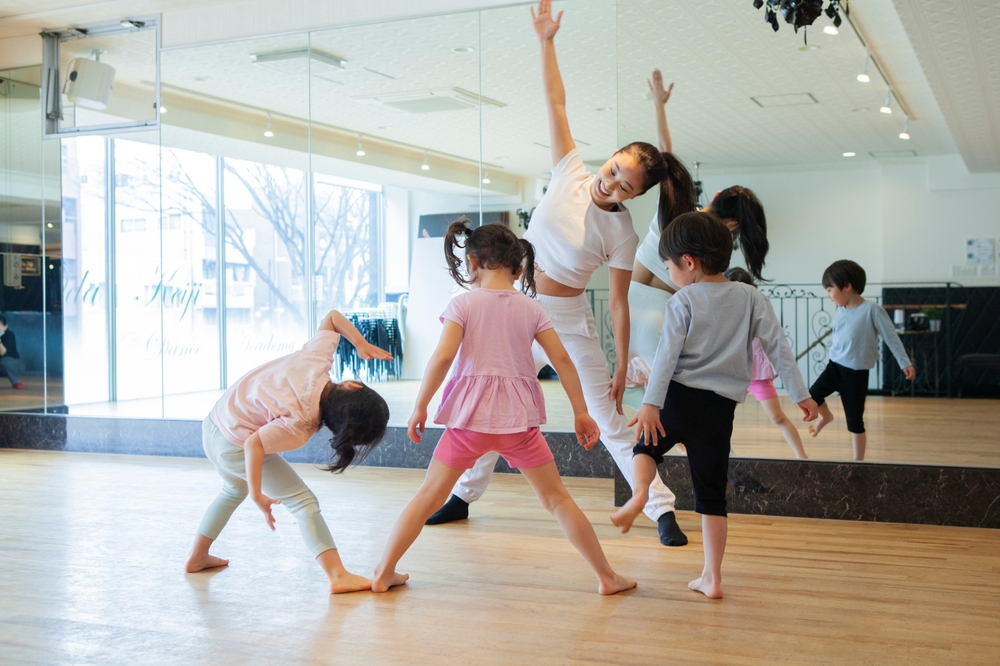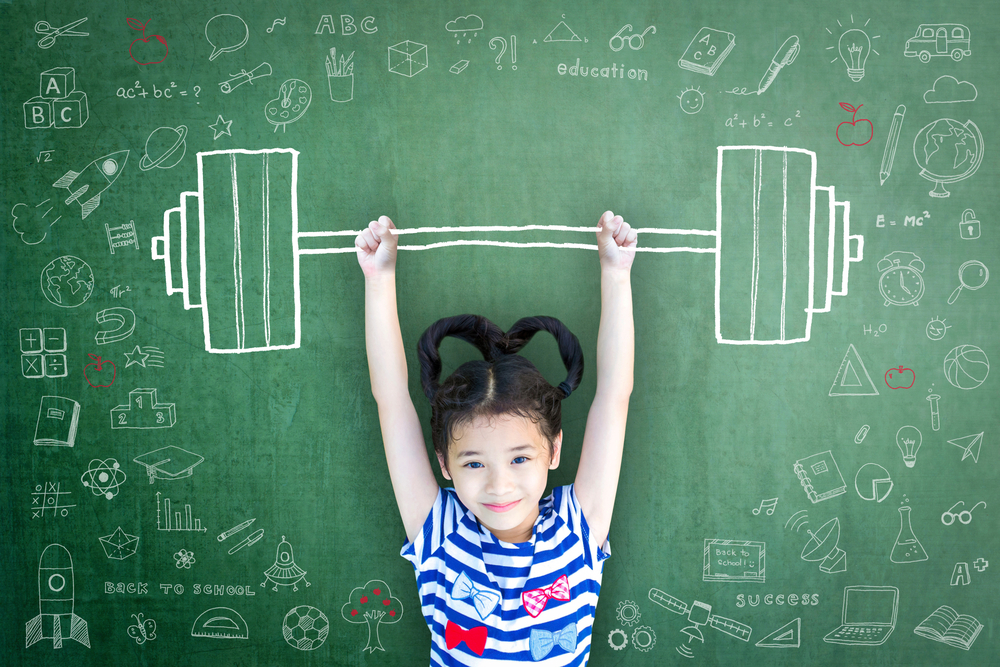Categories

How to raise children with a sense of security?
Written by: American Association for Play Therapy, Registered Play Therapist-Supervisor, Registered Social Worker Chan Tsz Wai According to Maslow’s hierarchy of needs, a sense of security is the second basic human need, just after physiological needs. Children who lack a sense of security may exhibit many behavioral problems. Without sufficient support to confidently explore the world, and without enough confidence that someone can provide safe protection, they may send misleading signals through problematic behaviors to express their emotional needs. Often, parents think that managing behavior more strictly will solve these behavioral issues in children, but this approach can backfire, leading to even less fulfillment of the child’s emotional needs. Years of research have found that a sense of security is based on establishing a secure attachment relationship with caregivers. Children with secure attachment relationships have a higher ability to regulate their emotions, solve problems on their own, have higher self-esteem and empathy, and possess better social skills and the ability to establish good relationships with others. However, how to establish a secure attachment relationship with children is a challenge for many parents. Understanding the needs of children Sometimes children need to explore the world on their own and use their abilities to solve problems, while at other times they need the help of their parents to regulate their emotions. Parents need to know when to let go and when to extend their hands to offer hugs and support, which requires careful observation of the child’s needs. Young children may wander

How to effectively reward children?
Written by : Pario Children, Parenting Education Centre Childhood and family have a profound impact on a person. How do parents influence their children’s growth? How to cultivate good behavior and character in children? Is it correct and effective to use rewards and encouragement? Do not turn love for your child into a reward It is often heard that parents say, “If you behave, daddy will shower you with love.” Parents think this is providing positive reinforcement, encouraging positive behavior in children, but shouldn’t the companionship of mom and the affection of dad be unconditional? Love and affection should not be contingent on being well-behaved! A child’s self-worth should not be equated with their behavior or achievements. Do not turn existing habits into rewards Some parents might say: “If you behave, we will go to the park on Sunday!” When the child behaves in a “naughty” manner, parents cancel the child’s original plan to play in the park, letting the child learn to bear the consequences. Although this is one of the parenting methods, if the child originally has the habit of going to the park every day, and the parents use “going to the park” as a reward, is this really a reward? This is just continuing the daily routine! Of course, if the child does not usually have the opportunity to go to the park, this reward would be very attractive to a child who naturally loves to play! Clearly explain rewards and good behavior Rewards are necessary!

Don’t let the promotion of a child to the next grade harm the child’s psyche
Written by: Octopus Parent, Mr. Leung Wing Lok The registration for Primary One discretionary places has closed, and parents who have “bought and left” can only resign themselves to fate. During the period from now until the release of the allocation results, the only thing that can be done under the government’s school allocation system is to “wait idly.” There are still a small number of Direct Subsidy Scheme (DSS) and private schools accepting applications. Parents who are unwilling to participate in the lottery for the central allocation can try their luck with DSS and private schools. Moreover, there are many websites that list the application deadlines for self-financed and private schools. For parents of students who have already applied to DSS and private schools, especially those who are preparing intensively for interviews, I must remind parents to prioritize their children’s mental health. Intensive interviews harm children’s psychology Humans always tend to repeat mistakes. Every year, after the peak period of interviews in September and October has passed, there are many well-intentioned people and organizations concerned with children’s mental health reminding us not to let intensive interviews harm children’s psychology. From what I remember, the most shocking newspaper headline was “Unable to withstand the intensive interviews for Primary One, a 5-year-old girl becomes depressed and wants to jump off a building.” These young children, only 5 or 6 years old, still do not understand what primary school life is about, nor do they know the difference between good and bad

A story that enlightens ‘monster parents’ in 5 minutes’
Written by: Mr. Chiu Wing Tak, a senior education expert and honorary advisor to the Association of Careers Masters and Guidance Masters If you ask me, in the decades of teaching experience, what are the most unforgettable moments, I would unhesitatingly answer the stories that enlighten people. Why am I so attracted to enlightening moments? Because enlightenment is a form of “higher-level education,” and as someone who deeply loves education, these moments are particularly memorable. Below is a story of how I enlightened a “monster parent.” Why did this parent become a monster? Because he “pulled out all the stops” to make his son win awards! And I “woke him up” in just 5 minutes! The “monster parent” was a professional who had very high expectations for his son, demanding that his son win the Best All-Round Student award at school every year. His son had been attending the school where I taught and had already won the all-round award for his grade level for two consecutive years. In the third year, he and his son continued to work hard, hoping to achieve a “hat trick” by winning for three consecutive years! The student and his father were well aware of the areas the school emphasized, so they focused all their efforts on those key areas. However, that year, an unexpected change occurred when the school increased the weighting of certain subjects’ scores. As a result of this change, the student ended up in second place. Upon learning that he

Will the competition come to me? Don’t train your child to be an exam-taking machine.
Written by: Mr. Victor Ching, Registered Psychologist, Child Psychological Development Association I have been working in early childhood education for some time and has observed that many institutions and parents have distorted values, which ultimately harms the next generation. However, I also understand the pressure parents face, possibly due to excessive competition. My educational philosophy is to inspire children’s interest in learning. The child has attended various interest classes and participated in public competitions voluntarily. I never forced learning but instead exposed the child to different things from a “play” perspective to spark interest. Not everything introduced will capture the child’s interest, but that’s okay because there are many fun things in the world! For example, the child once tried playing the piano at a nearby piano store and fell in love with it, insisting on learning. However, I did not immediately enroll the child in lessons but allowed for more exposure to confirm the interest. Even after studying for over a year, the child has not taken any exams because I believe the interest should not be overshadowed by the pressure of exams and does not want the child to lose interest in music. Regarding a Mandarin recitation competition, when the child was in K1, the teacher selected students for the competition, but the child was not chosen. The mother told the child to express the desire to participate directly to the teacher. The same situation occurred in K2, and the family’s response was consistent. By K3, when the

Delaying Tactics for Cultivating Children’s Patience
Written by: Pang Chi Wah, Registered Educational Psychologist, New Horizons Development Centre Hong Kong is a society abundant in material wealth, but due to the overabundance of resources, when children have needs in life, parents quickly provide them with ample supply, allowing them continuous satisfaction. However, parents satisfying their children’s needs too quickly can have a negative impact on them, failing to cultivate their ability to endure, and over time, their patience may become limited. Utilizing Emotional Intelligence to Cultivate Children’s Patience Delaying gratification or the fulfillment of life’s needs is an important part of developing emotional intelligence (EQ). If parents are accustomed to quickly satisfying their children’s needs but then complain about their lack of patience, such criticism is unfair to the children, as their patience has simply not been nurtured. How can one delay the fulfillment of children’s needs? To train children’s emotional intelligence, the secret is “neither using the cane nor the carrot,” meaning that neither corporal punishment nor frequent rewards are necessary. Instead, patience and the ability to wait are cultivated through daily life experiences. Parents can try the following examples: Example 1: When parents and children go to a dim sum restaurant, there is no need to let the children eat whatever they like immediately. Parents can ask the children to wait for 5 minutes after finishing one basket of dim sum before eating a second type; or they can require the children to wait until the parents have eaten a portion before they can

How to reduce the side effects of rewards?
Written by: Pang Chi Wah, Registered Educational Psychologist at the New Horizons Development Centre Some parents have the following thoughts about rewards: “The original intention was to praise the child’s good performance, but now the reward seems to have become a bribe.” “He has become utilitarian, calculating the degree of his effort based on the size of the reward.” “Sometimes I even feel that the child has become greedy. The rewards that once attracted him no longer have the original effect. Only by providing richer rewards is he willing to make an effort.” In fact, in the commercial society where adults are located, bosses also use rewards and bonuses to praise employees’ outstanding work performance and inspire employee morale. Many early childhood education experts have also proposed a reward system, using children’s favorite food, toys, etc., to train and cultivate their good behavior habits. Rewards have become our usual way, but parents’ worries are not unfounded. How can we reduce the side effects of rewards? There are mainly two directions to reduce the side effects of rewards. One is that parents can change the type of rewards, and at the same time, they must not encourage children with money, otherwise it will make children prioritize money and everything will be based on materialism. The rewards given by parents can be changed from one-time enjoyment such as food, gradually transformed into long-term gifts, such as entertaining toys, academic stationery, etc., and later can be rewarded spiritually, such as parents giving certificates,

Intelligent learning through exercise
Written by: Fung Ji Hei, Game Therapist I just participated in a professional development exchange activity for teachers in Taiwan, and witnessed how Taiwan’s education system emphasizes using exercise to cultivate children’s growth. This has given me new inspiration, and I hope to share it with all parents. One of the schools we visited for the exchange could be called a “mini sports university” – “Tiger Forest Elementary School”. As soon as I stepped into the school, the students greeted us with the government-promoted fitness exercises. They followed the rhythm to raise their hands and move their bodies, doing all kinds of warm-up movements. It made me feel like they were as lively as little tigers, and I felt like I had entered a forest full of little tigers. Exercise Can Strengthen Children’s Learning Ability Principal Liu of Tiger Forest Elementary School said that the school is a key government school focused on the physical development of the students, and believes that exercise can strengthen their learning ability. They are based on the research of John J. Ratey, MD, an assistant professor of clinical psychiatry at Harvard Medical School, and advocate the “Anytime Exercise” program. This program encourages students to exercise at any time. During breaks, students run to any part of the playground to exercise, some play dodgeball, some climb on the jungle gym, and some play badminton. All the students enjoy every moment of exercise. The Benefits of Exercise – Strengthening Brain Function It is well known that

How to discover hidden talents and potential?
Written by: geneDecode Genetics Education Professional Team Innate potential is an ability that everyone is born with, a genetic characteristic that is present before growth. From birth, each child possesses their own unique talents. In the process of a child’s growth, emotional intelligence, IQ, and the ability to withstand setbacks, among others, are all necessary conditions for success. Among these conditions, each child’s talents are different. Can we discover their innate talents in the innocent eyes of children? Can we be sure to capture these talents and guide the children on a path of growth that suits them? Here is a mother’s experience: ‘Amy is 4 years old this year. As she grows up, she is becoming more and more curious about the things around her. Amy’s father noticed that she seemed to show a special interest in doodling when she was 2 years old. I casually gave her some paint, and she could use a brush, crayons, or her fingers, even a bottle of ketchup, to paint. No one knows what she is painting, maybe only she knows. Amy’s father and I both think that she should be allowed to grow freely. I found that she seems to like painting very much. If she is really good at it, I think we will definitely cultivate her well.’ Amy’s parents are wise. Each child has different talents hidden in different fields. When a child’s talent is found, if it can be cultivated and paid attention to by parents and teachers,

How to handle the awkwardness when grown-up children find it awkward to have heart-to-heart talks with their parents?
As children grow up, many parents may find that their children become increasingly resistant to having heart-to-heart talks. The children may feel awkward, or perhaps the family relationships have not been very close since childhood. Dr. Wong Chung Hin, a specialist in psychiatry, points out, “It is crucial for parents to establish a good parent-child relationship from an early age. If parents suspect emotional issues in their children, in addition to observing changes in their behavior, they can guide their children to express their thoughts and understand their inner world.” As mentioned earlier, parents and children should establish a parent-child relationship from a young age, setting aside time each day for parent-child communication and engaging in interesting family activities together. Dr. Wong emphasizes, “A close parent-child relationship helps children express themselves to their parents. Even as they grow older, they will be more willing to express themselves and have trust in their family.” However, if a child is unwilling to reveal their thoughts and parents notice changes in their behavior (refer to: https://www.parentsdaily.com.hk/expert/4073), Dr. Wong advises parents to patiently guide their children to express their inner feelings. “When children express their thoughts, parents should listen patiently and provide them with the opportunity to express themselves. Establish a daily parent-child chatting time, allowing children to have a channel to express themselves at home. Parents should remember that once children mention symptoms related to emotional issues, parents should not criticize or constantly deny their children.” Dr. Wong continues, “Everyone has their own thoughts
